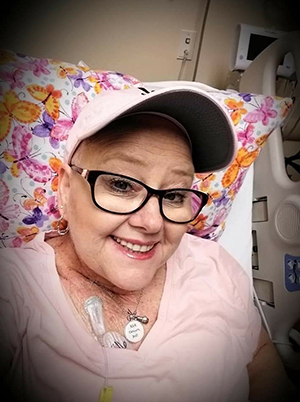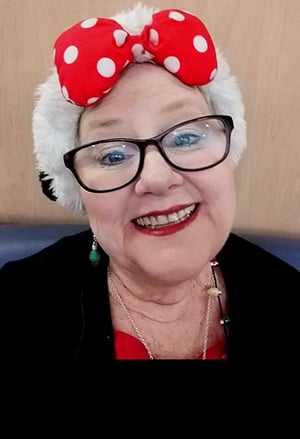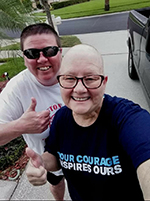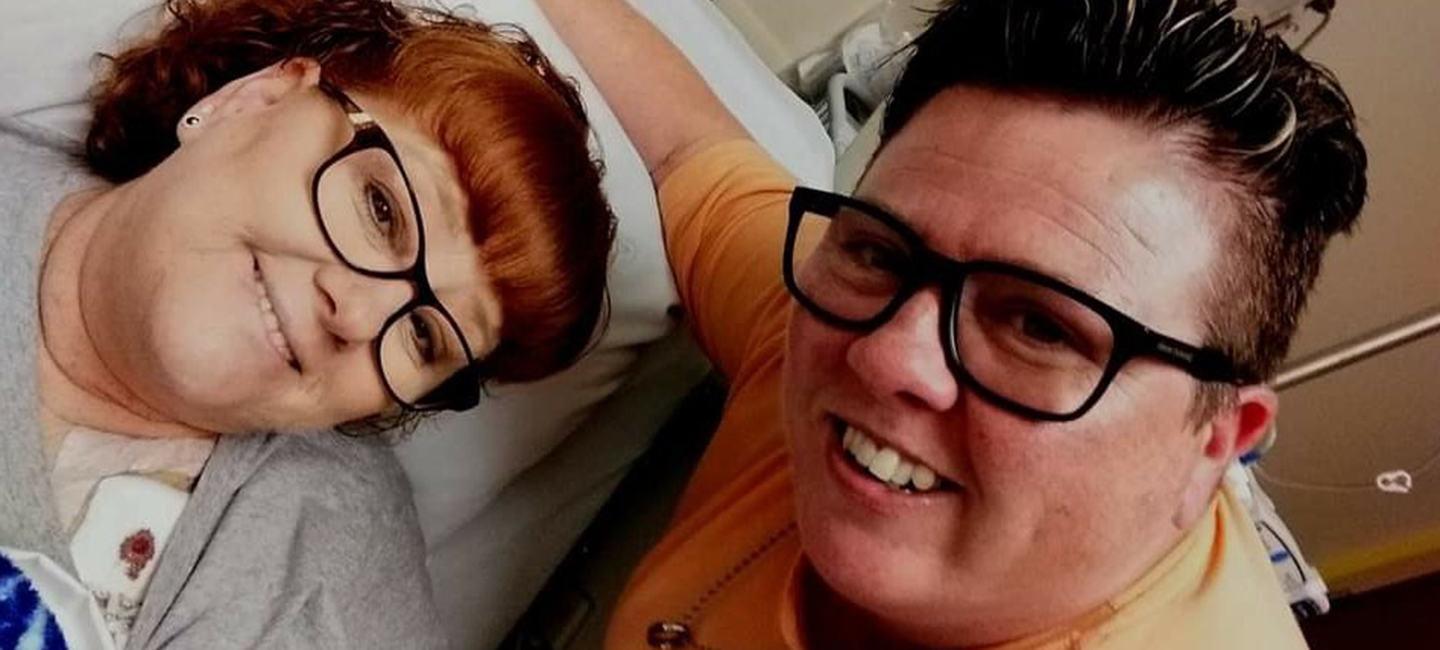Save A Life This Month by Donating Blood
One in seven patients entering a hospital may require blood, especially those at Moffitt Cancer Center.
For cancer patients, like Wanda Lane, donated blood gives the assurance that if needed, due to loss of blood during surgery or low blood count due to the side effects of chemotherapy, there is an adequate supply on hand.
January is National Blood Donor Awareness Month, and Lane is encouraging everyone to do their part and donate.

Wanda Lane receiving treatment at Moffitt
Being diagnosed with multiple myeloma in 2017 was a stressful time for Lane. She was anxious about treatment, chemotherapy, a stem cell transplant and the possible need for blood.
“As a patient, I was assured that there was enough blood supply for me if the need arose,” said Lane. “It was important to know that if I did need blood, that there were individuals who were willing to give of themselves by donating blood for people in need, like me.”
At Moffitt, patients are in constant need of red blood and platelet transfusions to get them through their treatments. Since blood cannot be created in a laboratory and there are no substitutes, cancer patients depend solely on donations.
Before being diagnosed with cancer, Lane was a regular at blood drives. Donating during the week and even weekends, she eventually received her 25-gallon pin.

“I was always first in line to donate, I knew it was my responsibility to give to others,” Lane said.
Although she is unable to donate now, Lane is looking forward to being able to give blood again.
“When the time comes that I can donate blood, you know that I will be there,” Lane said. “I want to do my part for others, just like others did their part for me.”
For those who may be afraid to donate, Lane says to think about the lives that could be changed.
“There are people who are depending on you to save their life,” said Lane. “Giving blood doesn’t cost you anything, but it will save a life.”
Lane wants all donors and future donors to remember that they could be the next in need and that it is important to give blood, to give life.

There are several types of blood donations, and one donor can help up to three patients. The donation process can take up to 30 – 60 minutes and is painless, with the exception of the initial needlestick in the arm.
To donate blood in your local community visit, www.lifesouth.org or www.scbb.org.



